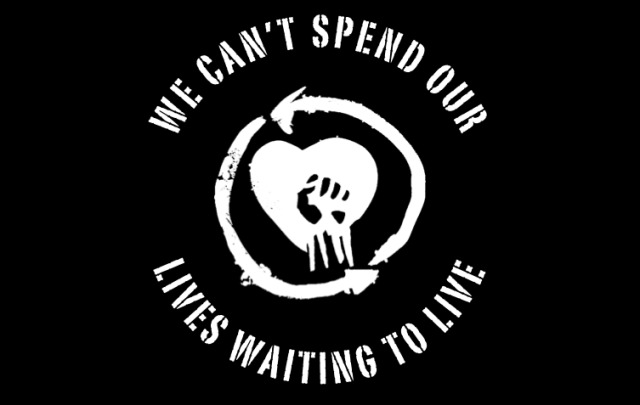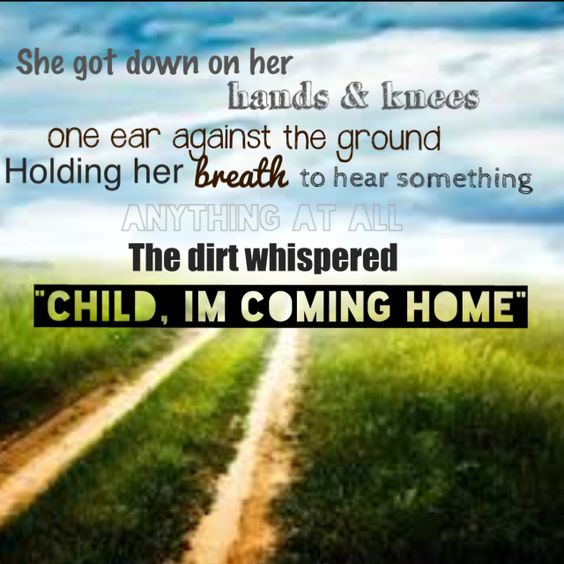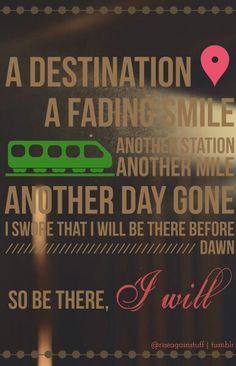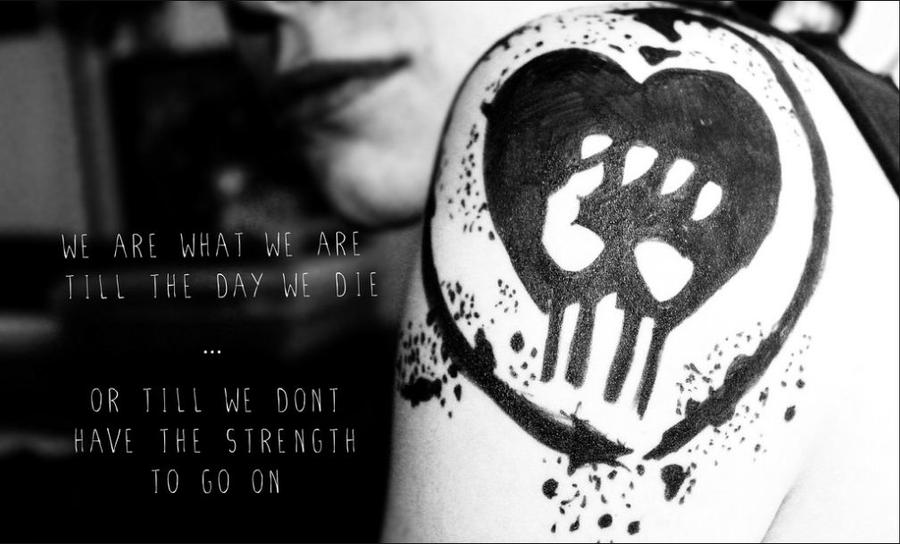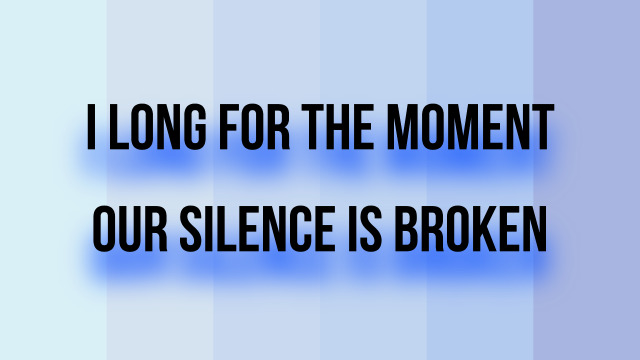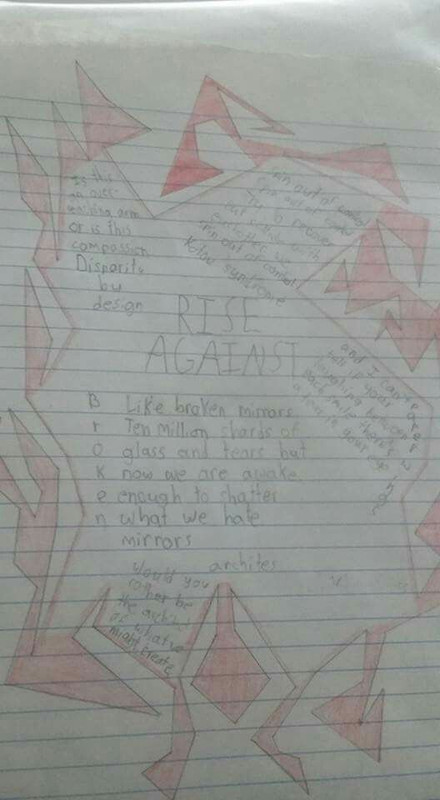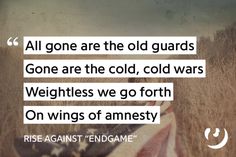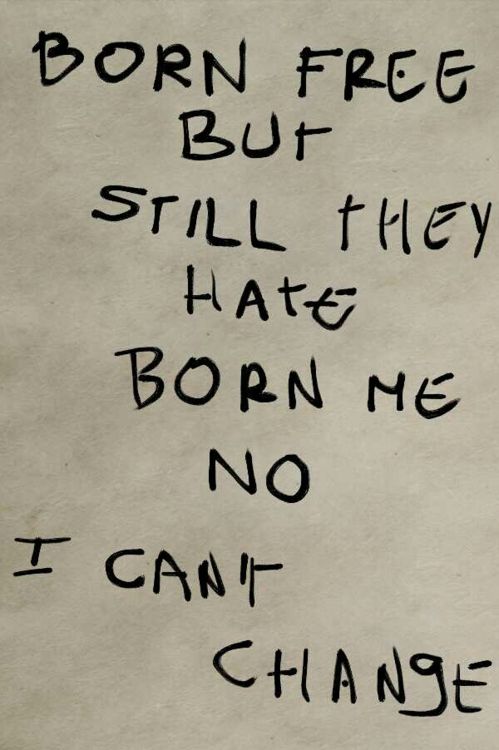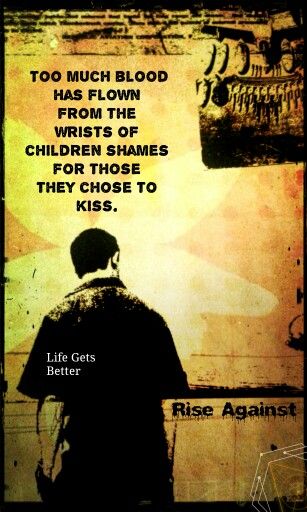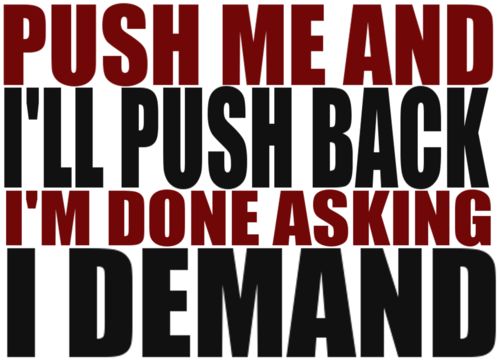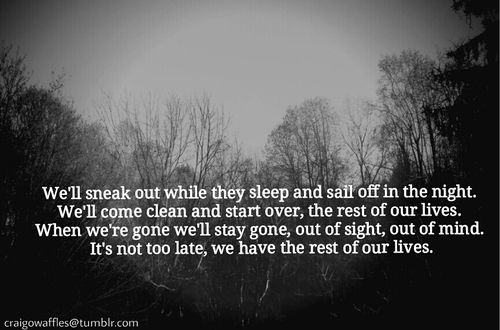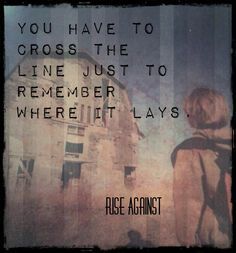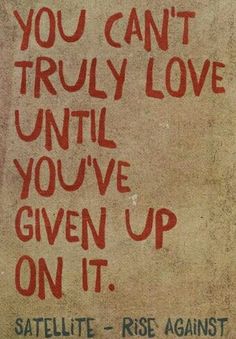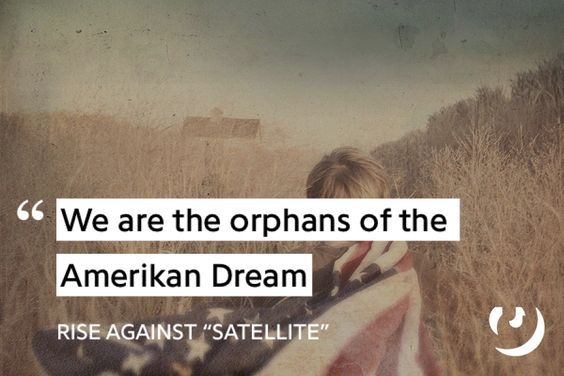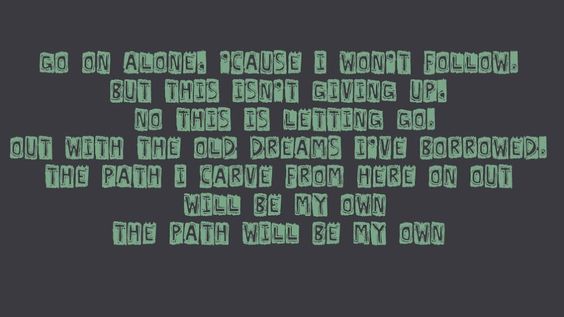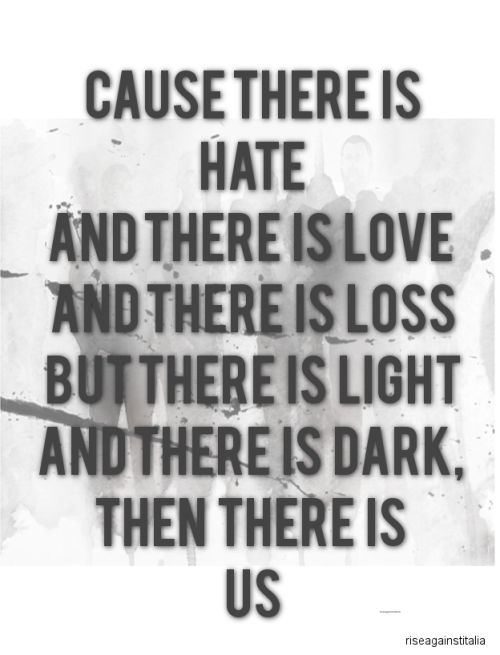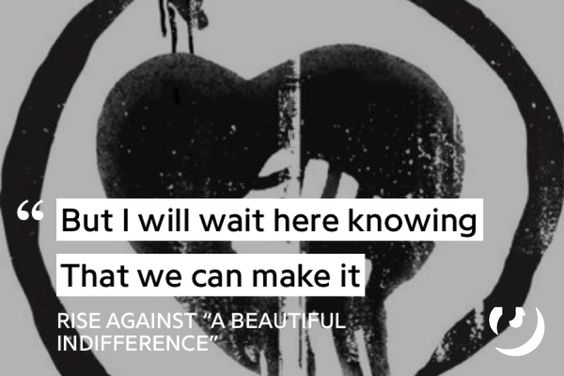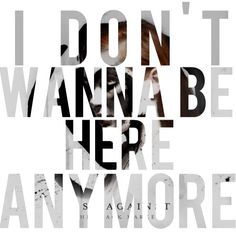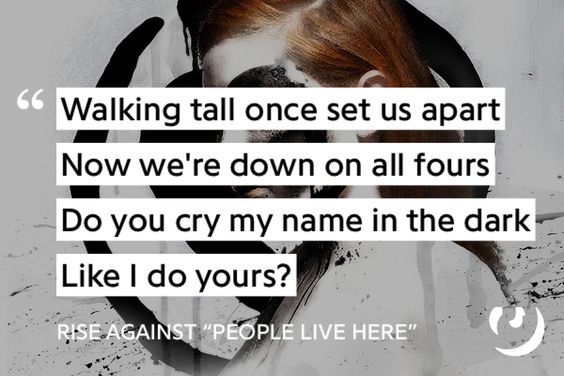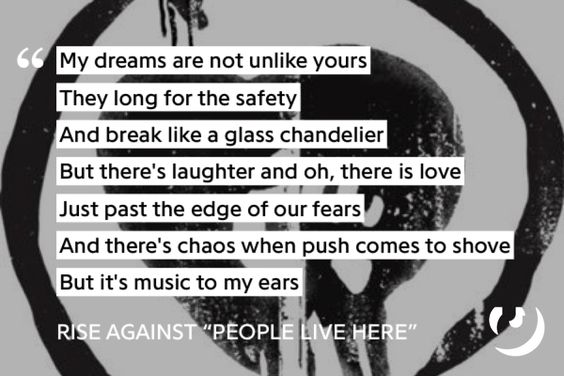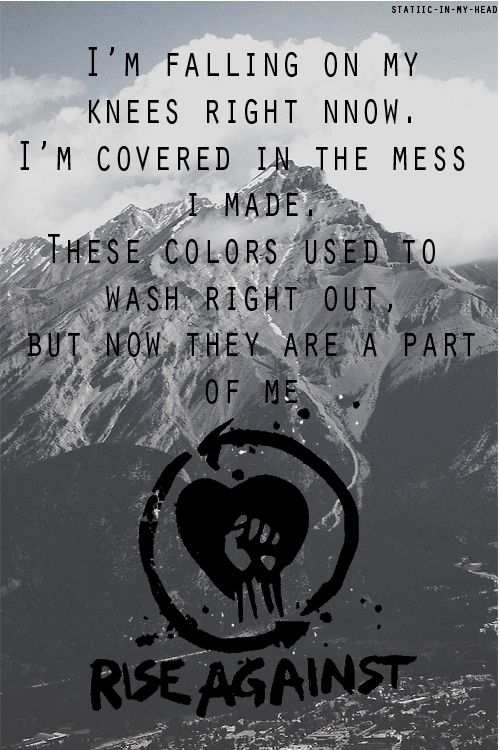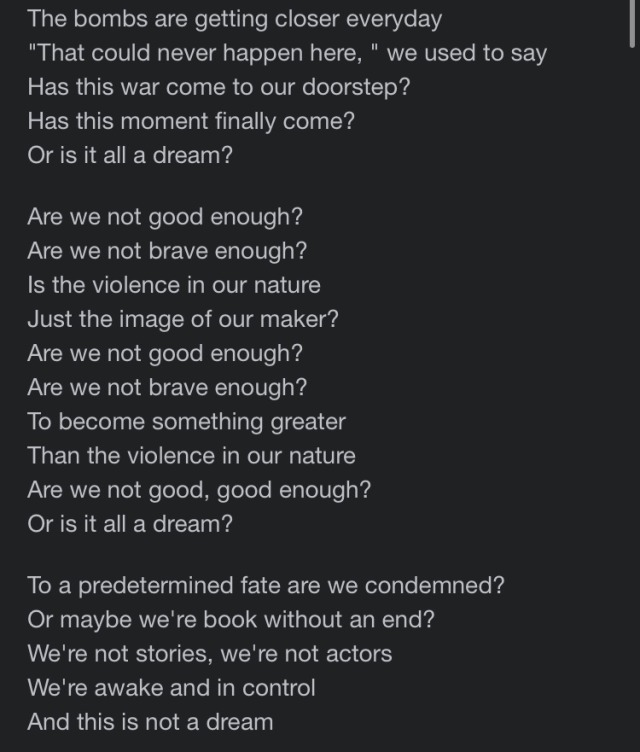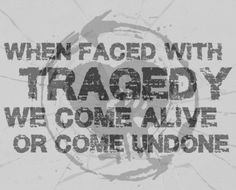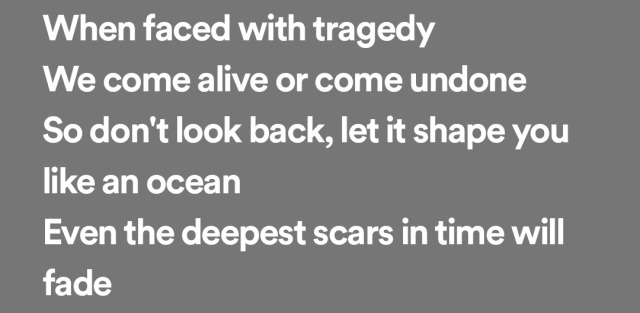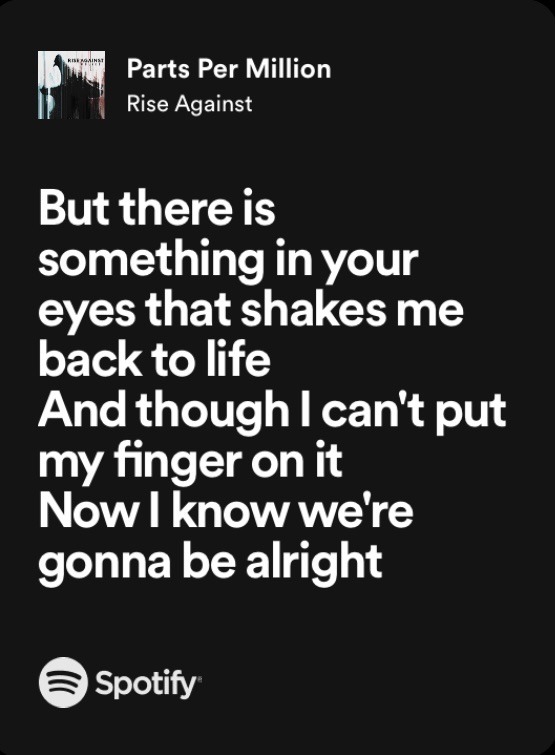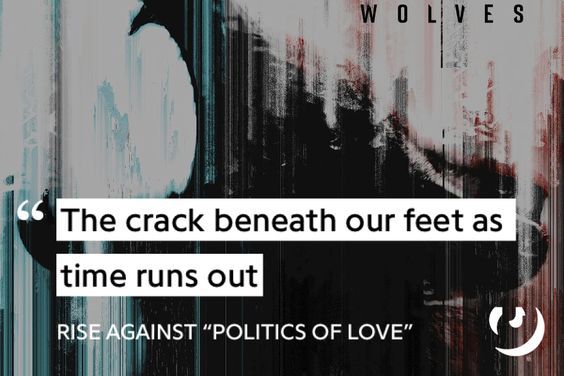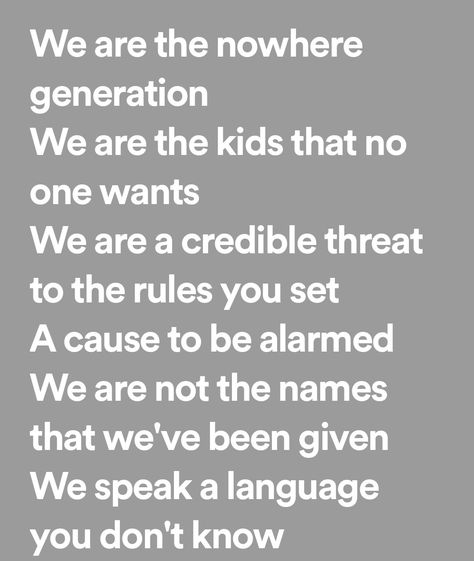

welcome to my page dedicated to the early-2000s-melodic-Chicago-hardcore band, Rise Against. their earlier albums are most known for their fast-paced tempo and gritty aesthetics, while their more modern albums are a lot softer and refined. most of their songs fall into two broad categories: personal songs, and political songs. personal songs include songs about personal relationships the band might've had (The Dirt Whispered, for example, is about the strain of touring and its effect on vocalist Tim McIlrath's family) or about personal struggles (like The Black Market, which is an introspection on being a musician). and political songs are, obviously, about political issues. mostly animal rights, anti-capitalism, monotony etc.
like a lot of other people, one of the first songs of theirs i've ever heard was Savior off of their fifth studio album Appeal to Reason circa 2008. on the surface they seemed to be an edgy lovesick heartbreak band, when in reality they are so much more.
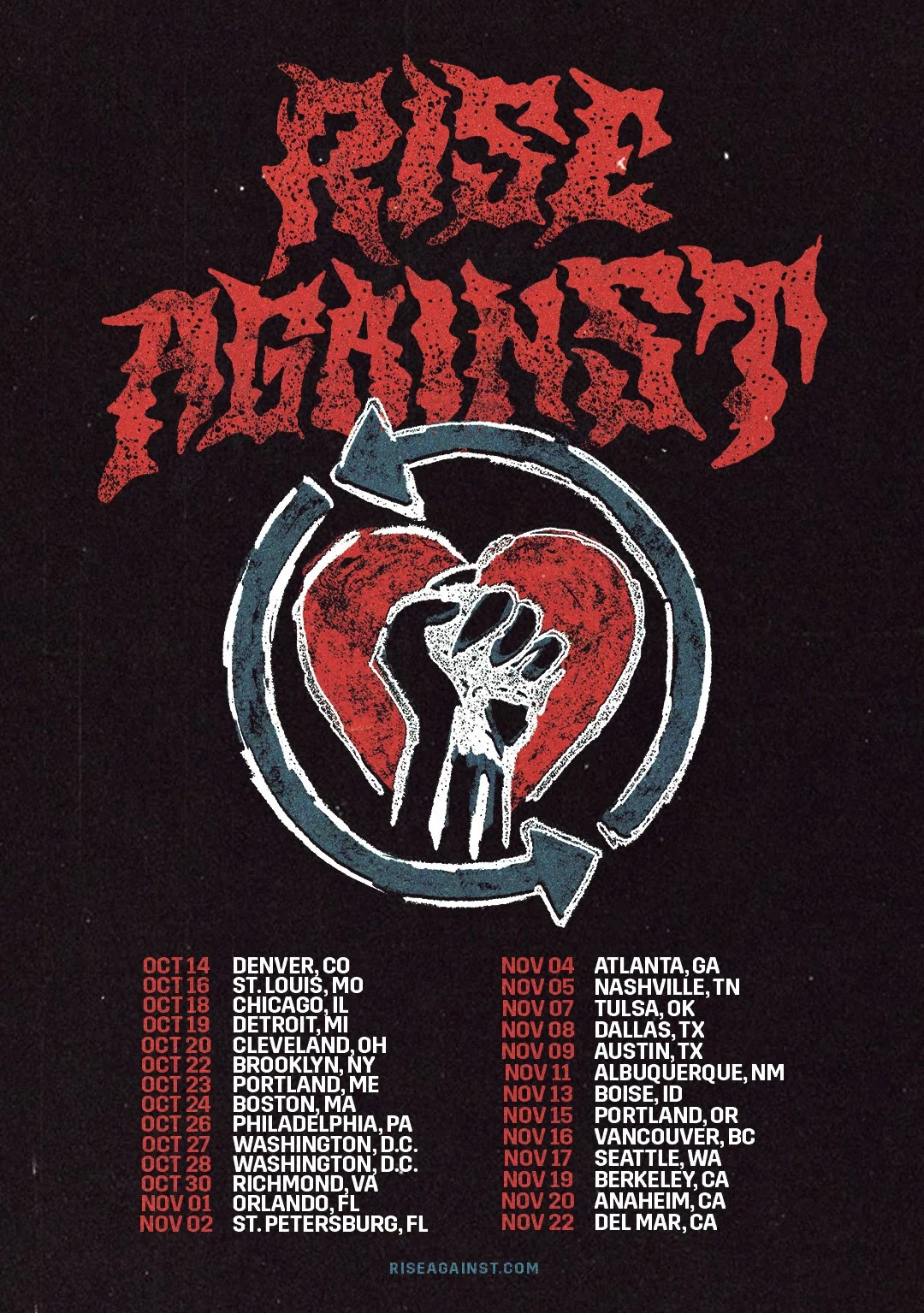
[17.11.24] The Showbox SODO - Rise Against's 2024 Tour
LINEUP: Cloud Nothings / L.S. Dunes / Rise Against
DOORS @ 6:30 PM, PST
SHOW @ 7:30 PM, PST
SETLIST: Satellite / Under the Knife / Architects / Ready to Fall / Behind Closed Doors / Heaven Knows / State of the Union / Long Forgotten Sons / House on Fire / Hero of War / Swing Life Away / The Black Market / Prayer of the Refugee / Make it Stop (September's Children) / Blood-Red, White & Blue / Savior
DISCOGRAPHY (+ COLOR KEY)
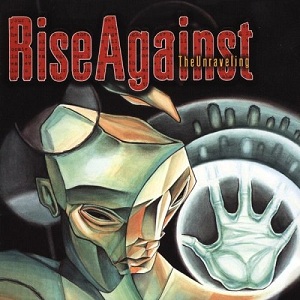
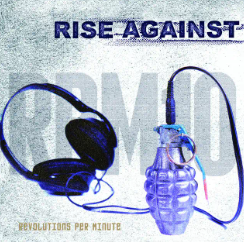
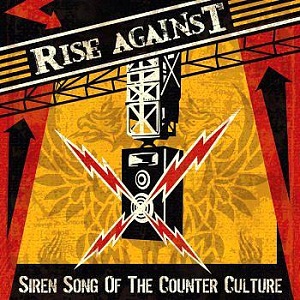
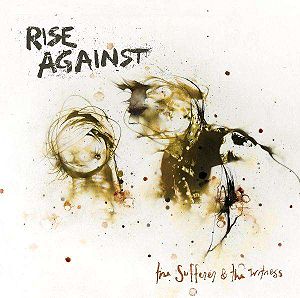
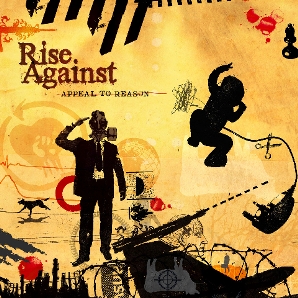
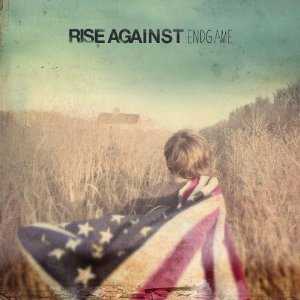
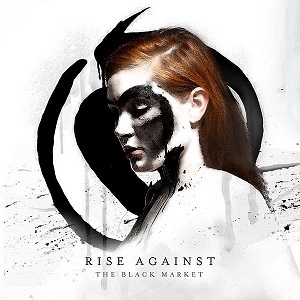
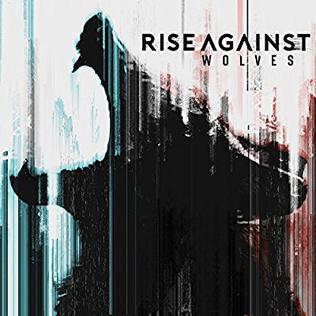


Lyric & Song Dissections
Whereabouts Unknown [09.10.25]; 5:32 AM
Whereabouts Unknown (or The Metal March, according to Tim) is the closing track of Appeal to Reason. it's one of the softer songs on the album, and closes the entire thing out on a shakespearien story of heartbreak. about two long forgotten friends, on opposite sides of the battle field.
there's a lot of poetic tragedy in this tale, and i think it especially shines through in the second half of the track. whereas the first part is mostly some exposition about the characters, the second half gives some absolutely fucking gut punches:
Another place, another time
We toed the same side of the line
Yeah, we saw eye to eye
Even then the saddest sounds
Were nothing laughter could not drown
But we are not laughing now
I see your face
In my sights
I hesitate
And then look for a sign
Somewhere in the sky
the juxtaposition between the two is stark; firstly, he talks about his brotherly comradery. toeing the same line, seeing eye to eye, drowning their sorrows in laughter. the last line of the verse, though, brings us back to reality. the protagonist looks down the sight of (assumedly) a sniper rifle, at a friend he once loved and hesitates as he aims. i can't express how great this dichotomy is.
i also want to just higlight the chorus, because it's easily the most impactful part of the song. specifically the chorus after the bridge, the one that closes the track (and album) out. if the verses/pre-choruses are the sort of level headed commentaries on the state of their relationship, the chorus is a plea for the future of it.
Your whereabouts unknown
Please know you can come home
It's alright
I long for the moment
Our silence is broken
It's all right
It's all right
It's all right
It's alright now
It's alright now
'Cause all is forgiven
If you could just listen
It's all right
It's all right
even though this song is inherently political, i do like how almost everyone can relate to this in an a-political way. not everyone knows a Christo-facsist soldier, but everyone has a friend that they've lost touch with. everyone has a friend they miss. the repetition of that last line, "it's alright," is filled with desperation but also love. and his final speech, about forgiveness, ends the story unresolved... which leaves the album with a strange unfinished feeling. like there should be more to listen to, more stories of love and war and the weird ways they intersect. overall, it's just a fantastic song and an incredible end to a phenomenal album.
The Dirt Whispered [11.09.25]; 11:10 AM
The Dirt Whispered is something of a sister song to The Good Left Undone; they both have a similar vibe to them, what with the earthy metaphors for relationships and all. although the relationships themselves are very different. where The Good Left Undone is more of a "traditional" bittersweet love song about a girl, The Dirt Whispered is a story about the love of returning home; the love of domesticity. during the 2010 Rock am Ring festival in Germany, Tim McIlrath said:
"Anybody driving from very far away to be here today, anybody take a roadtrip? Alright, thank you for making that sacrifice. We know what it's like to spend your days on the road. That's what this next song is about."
before playing the song. which, is about as concrete an answer as you can get. however, where we lack mystification, we have an abundance of lore.
the first verse opens up like this: Tim's daughter is restlessly waiting for her dad to return home. we know that it's his daughter because of the additional lyric and namesake of the song (The dirt whispered, "Child, I'm coming home) in the bridge. i don't think that the girl is listening for just a literal sound, more than likely she'd also be trying to here the vibration of an approaching car. and the detail of her holding her breath in order to hear better is not lost on me.
the second part of the verse shifts focus from Tim's family to Tim himself. which is where we get more quinessential Rise Aganist lyricism.
Echoes of songs still lurk on distant foreign shores
Where we danced just to please the gods that only ask for more
And so it goes
at first glance, this seems like a dig at the audience. dancing just to "please the gods that only ask for more" is veryabout touring to appease their fans. Which is probably true, however I think the rest of the verse really puts the entire sentiment into context:
But still we give ourselves to this
We can't spend our lives waiting to live
suddenly it goes from an ungrateful artist complaining about touring, to an artist saying he loves it despite it's hardships. and then the drums pick back up, and the guitar plays faster as the chorus comes in:
On cold nights in a prayer for dawn
But the daylight isn't what she wants
The concrete calls my name again
I'm falling, through the cracks I slip
there's a cool perspective shift that happens during the chorus. the first two lines bring us back to the girl's perspective (or potentially Tim's wife), where she's presumably been up all night waiting for him to come home. hoping for the next day, because he might there then. the last two lines are back to Tim's perspective. the idea of the concrete calling to him, like a musical l'appel du vide, feels like the perfect way to describe the self-indulgence of performance.
the next verse exists to contrast this self-indulgence, a cold splash of water. Tim laments about his homesickness (The postcard says wish you were here but I'd rather I was there / Holding on to the simple things before they disappear), about yearning for simplicity and making up for lost time. and the bridge supports this idea. Tim lists off nouns— a destination, a fading smile, a station, a mile, a day gone —that describes the entire theme of the song in three lines, and ends with a promise to his family: So be there, I will
Broken English/Survive [05.09.25]; 12:07 AM
the beginning riff of Broken English sounds almost exactly like the (shortened) introduction to Survive off of The Sufferer & the Witness, which they would release 3 years later. and i find this interesting. because the two songs have, fundamentally, similar themes.
Broken English, if you couldn't tell by the name, is a song broadly about immigration. and, more specifically, seems to be about an immigrant from a war-torn country— a refugee.
there's a really incredible example of lyricism in the second verse. it's a blend of two idioms: "let the blind lead the blind" and "an eye for an eye," (Let the blind lead the blind / 'Cause it's eye for an eye in your so called life). and this is where we run into the main differences between these two songs.
Survive is a snarky anthem about surviving despite it all. the lyrics are a sort of "tough love" approach to monotony and nihilism, what i can only imagine as a response to the evergrowing trend of leftists and everday people becoming numb to the world around them. i mean, the second verse literally has the narrator leave behind their old life (I shirk my obligations, I miss all your deadlines / I excel at quitting early and fucking up my life)
and although they get there in their own way, the idea is fundamentally the same. the idea of resillience and rebuilding, whether literally or figuratively. whether trying to escape deep-seated capitalism or an even deeper-seated xenophobia.
Chamber the Cartridge [27.04.25]; 6:01 PM

The Sufferer & the Witness begins with this song, Chamber the Cartridge, and opens with a sample from a train station that declares "This is Noyes" (not only a reference to their origins as a chicago-based band, but also a nod to their 2007 EP This is Noise).
the pre-chorus is a great subversion of the "carrying the weight of the world" idiom. because the song is about the environmental and political collapse of the world and the damage already caused, the lyrics say Blind to this impending fate / We'll let the world carry our weight / It's back breaks with every mile / But we all live in denial! and the chorus keeps this same energy by asking the listener rhetorical questions about whether "we" have gone too far (Can we be saved, has the damage all been done? / Is it too late to reverse what we've become?)
where the first verses are more to set the stage, the second is a bit more specific on the faliures of humanity. specifically the last two lines. "brushing past" a homeless vet on wall street, a single mom, and a TV personality. one after the other. their use of "brush past" is purposeful because it gives the sense of numbness that you can get living in the same conditions for so long.
Drones [21.04.25]; 11:30 PM
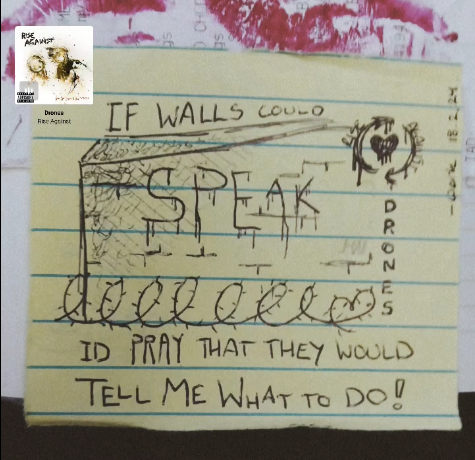
arguably the best transition between two tracks on an album happens between Prayer of the Refugee and Drones— the ending guitar riff that slowly fades coupled with the compounding bass and drums overtop some guitar feedback —it's extremely catchy, obviously, but it's also an interesting choice. they're both songs of struggle: the former being about the struggle of immigration, and the latter being about the struggle of capitalistic monotony. so tying them together feels purposeful. these issues often come together in real life
Black Masks & Gasoline [21.04.25]; 10:48 PM
Black Masks & Gasoline, to me, is the story of two people on the cusp of a revolution together; the "she" character, and the "i" character.
the chorus (and entire song) is spoken from the narrators point of view, and essentially asks the question "why do you care so much about the world if the world doesn't care about you?" this question echoes throughout the rest of the song. in the fourth verse, the narrator says One day I'll turn these thoughts into screams / At a world that turned its back down on me and in the first, the narrator says This life has taken its toll / She just doesn't know / How much more she can give.
each section of the song describes a different part of the narrative:
[Verse 1] an introduction to the characters
[Verse 2] an impending revolution that the narrator is figuratively on top of, in what i can only describe as an anarcho-daydream
[Chorus] the central theme
[Verse 3] similar to [Verse 2]
[Bridge] the climax of the song, a calling of revolution with imagery of violence and justice
[Verse 4] an introspection, and a sort-of opposite reaction than the [Bridge]. where the former is fueled by heart, the latter is fueled by head; as the narrator dreams of a better future
[Chorus] the central theme
there's a lot of talk of "we" and "us" and "our" throughout, and i think this could be interpreted in one of two ways: the narrator is, obviously, talking to us as the audience. but the narrator is also talking to this "she" character. an in this way, Black Masks & Gasoline is also a love story akin to Nineteen Eighty-Four. where two people can somehow find love in a world that keeps them under steel-toed boot.
and on that note... if you like that general vibe, i have a spotify playlists of songs just like this one.
graphics













lyrics & quotes

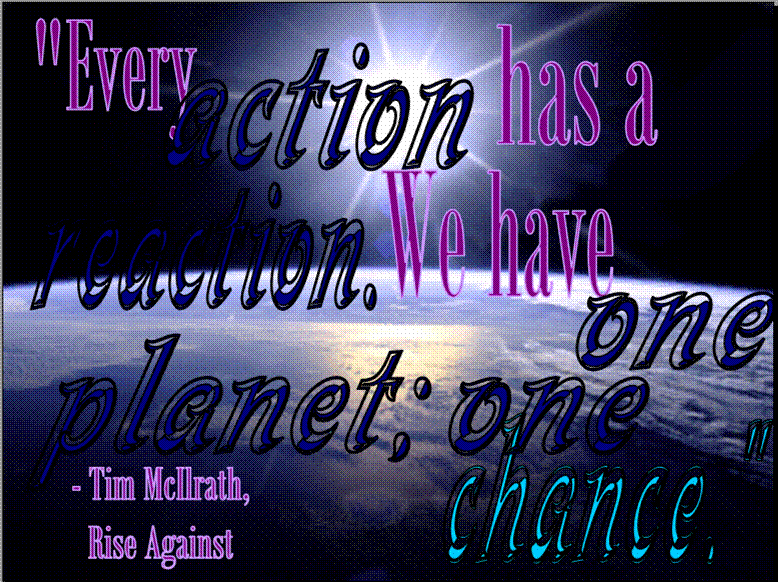
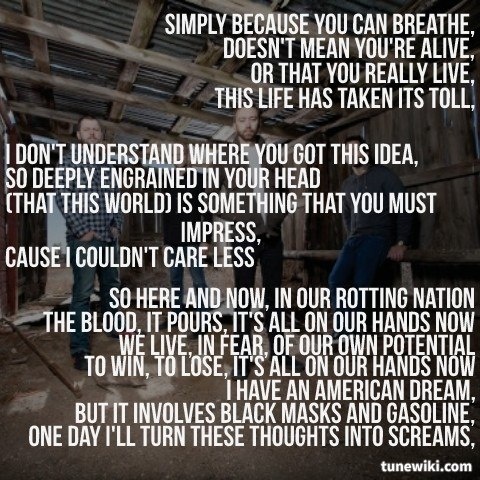
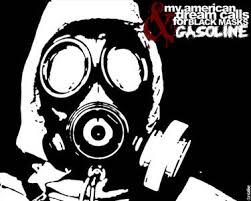

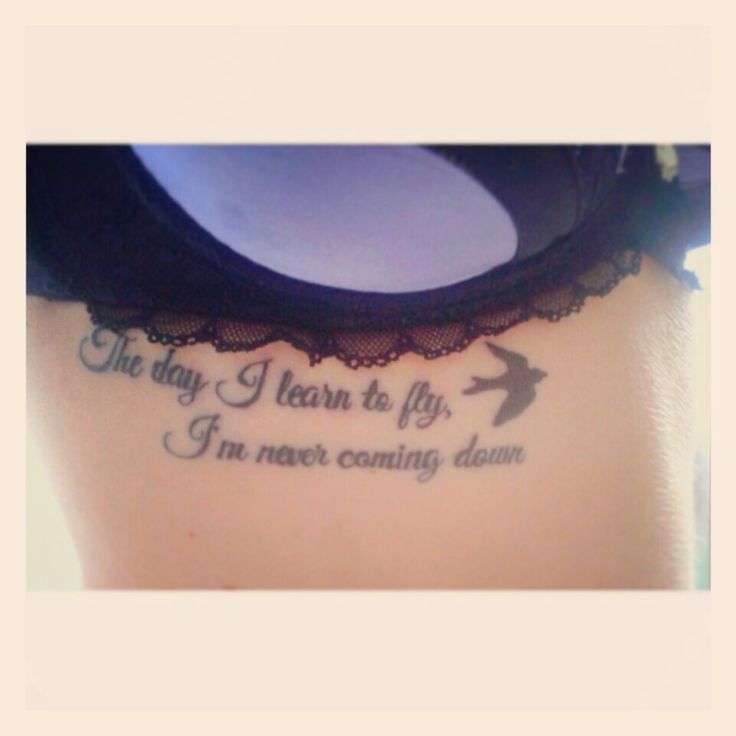
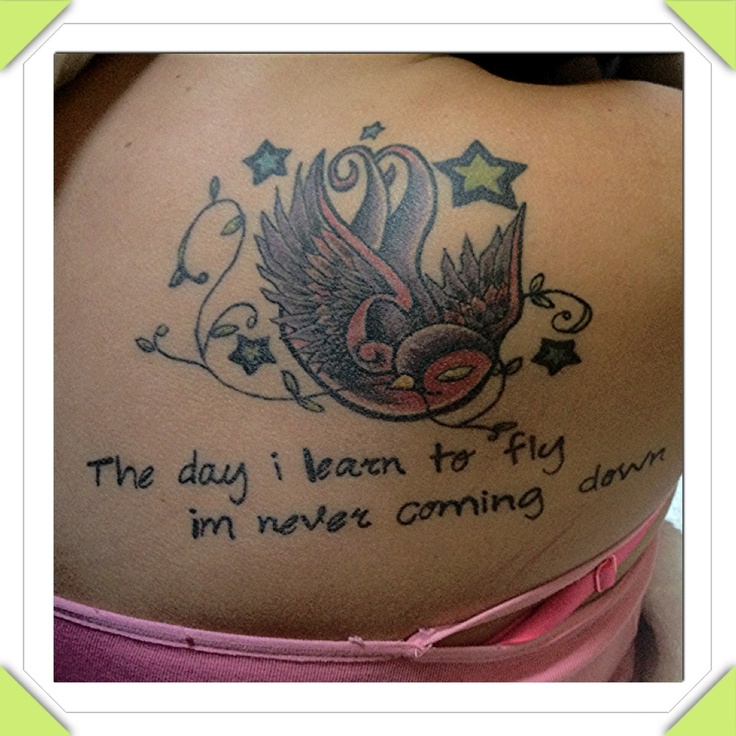
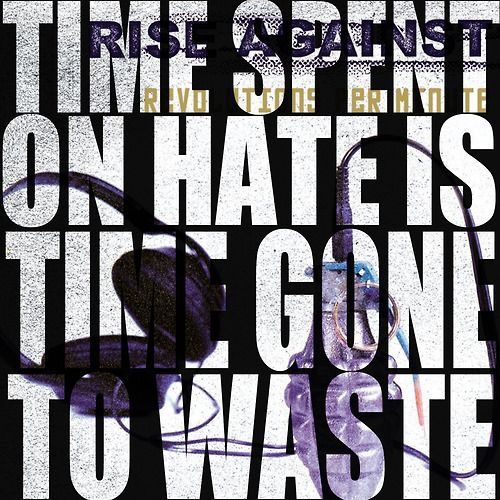
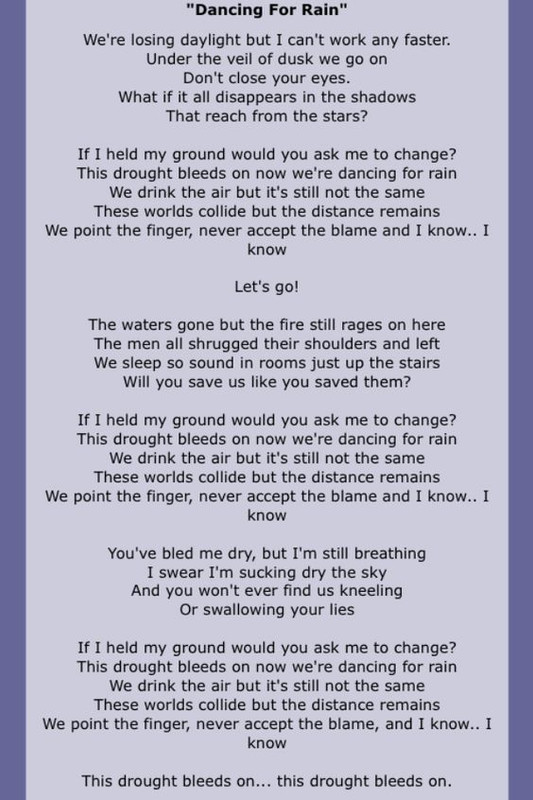
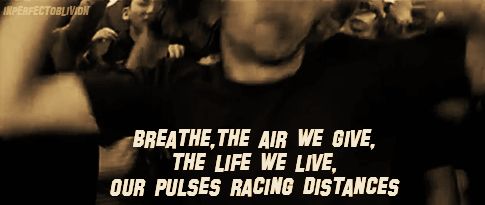
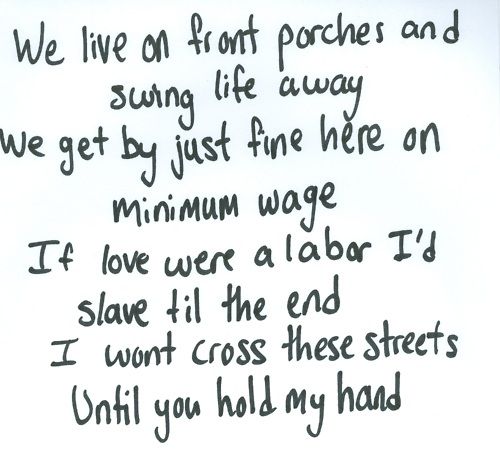
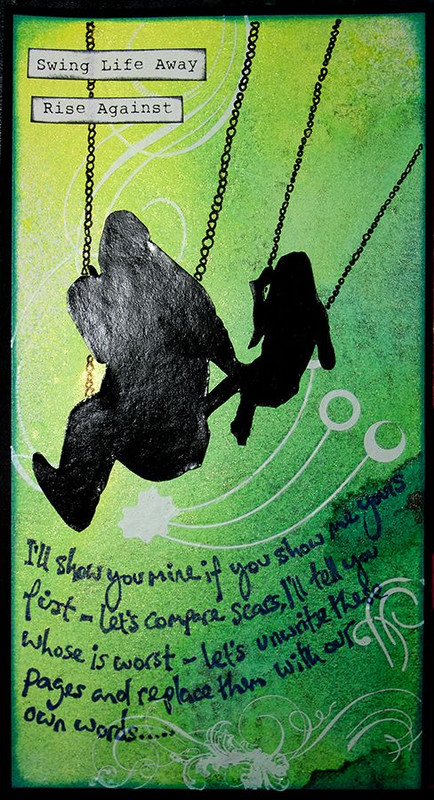

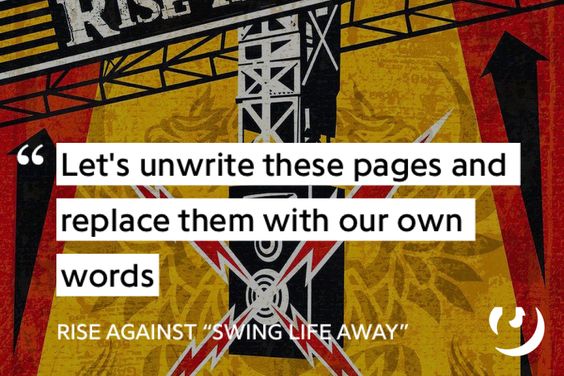


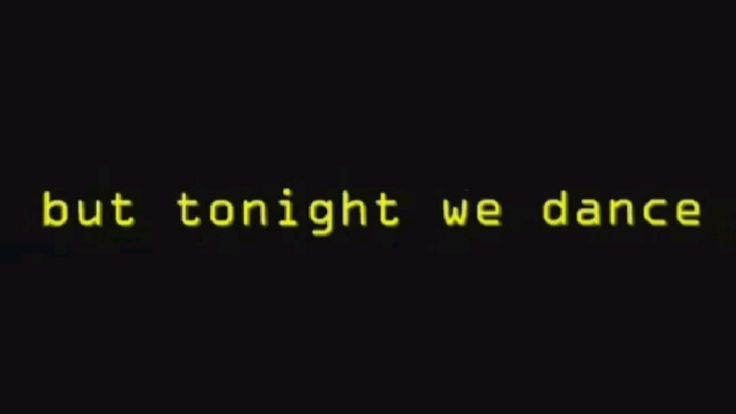
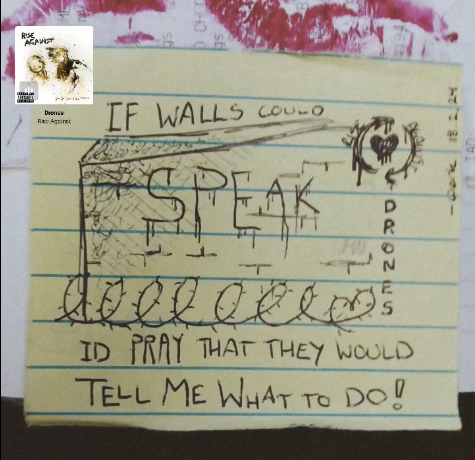

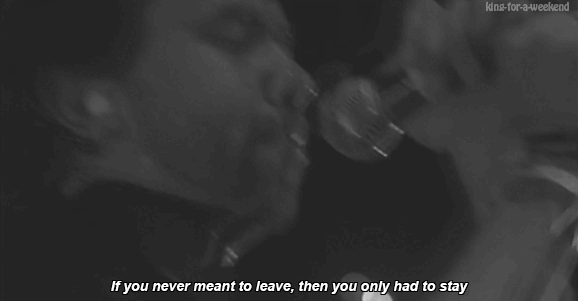
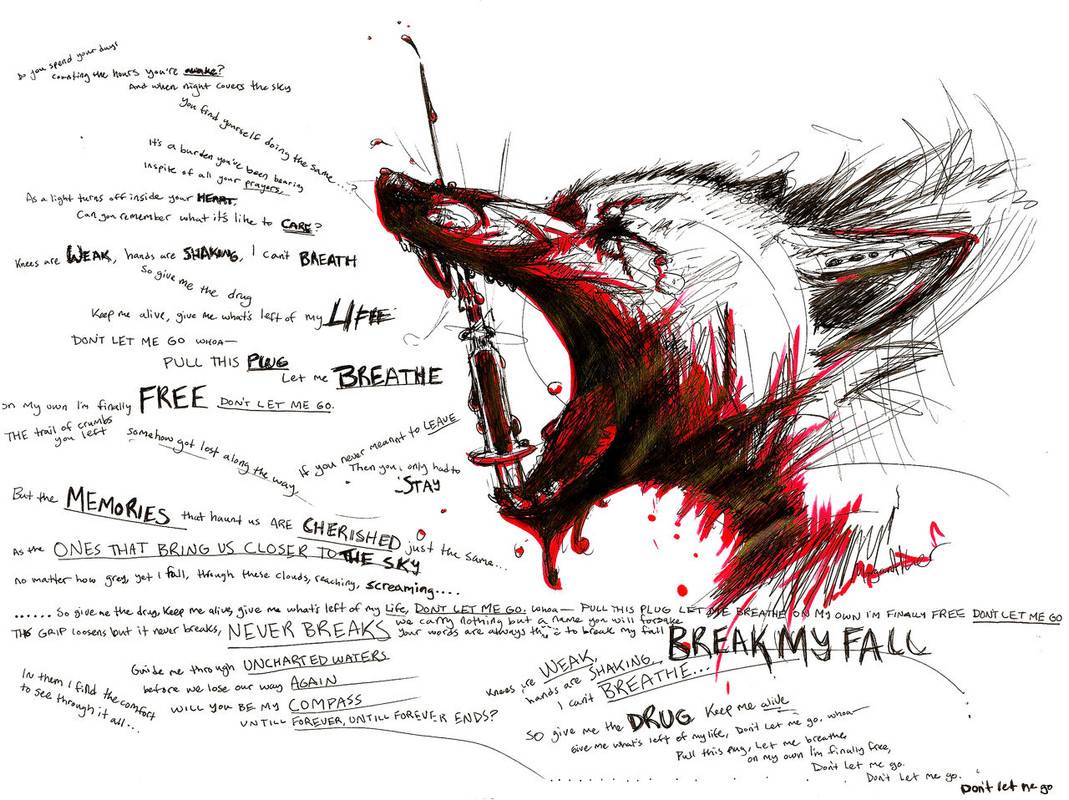
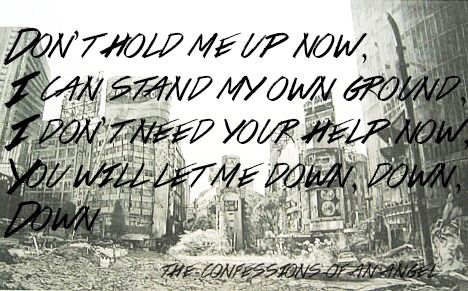
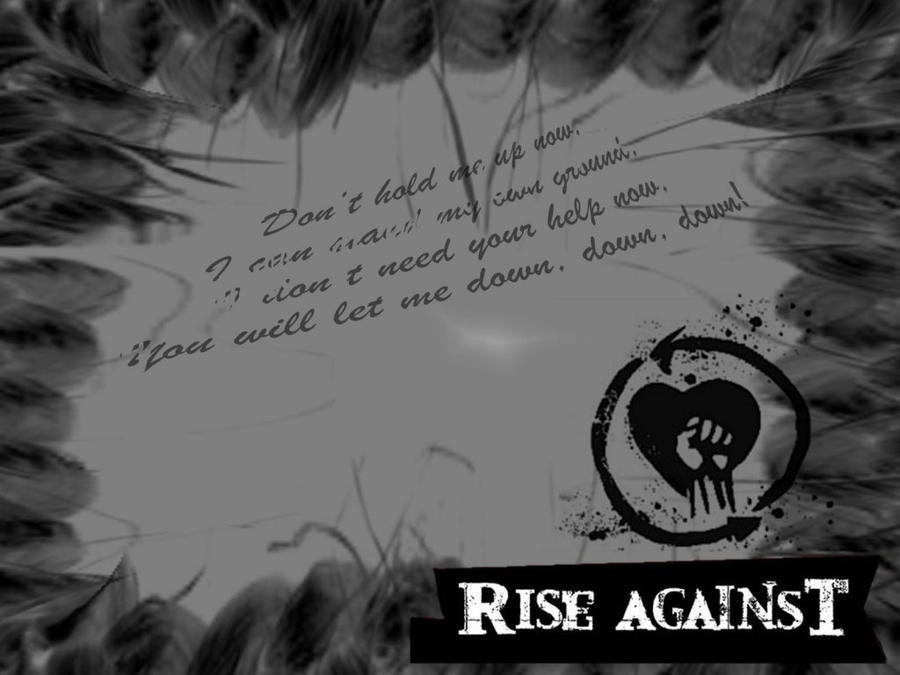
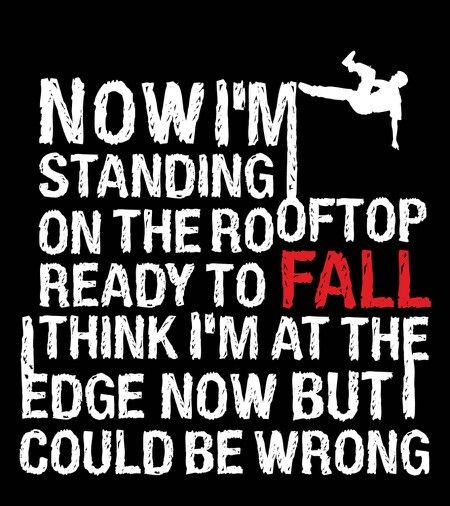
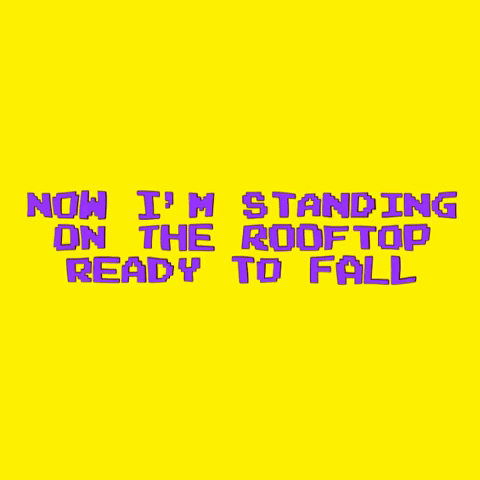
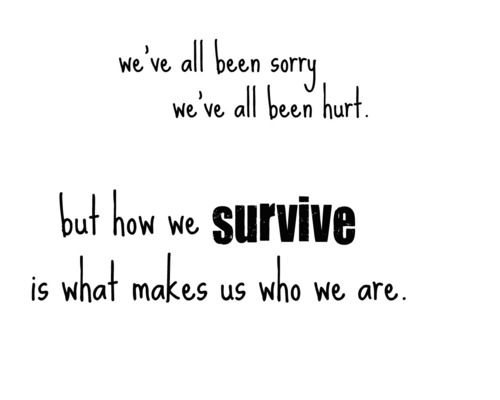
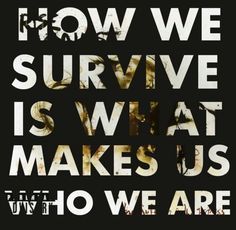
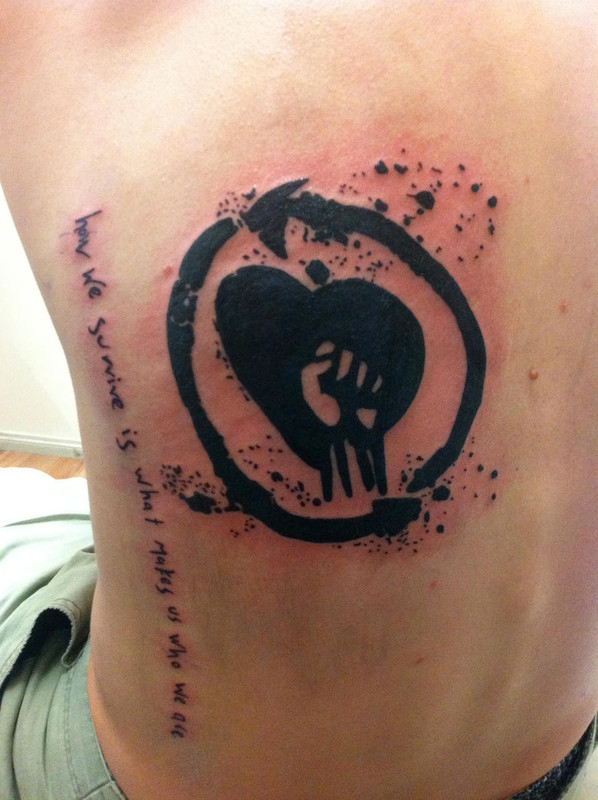
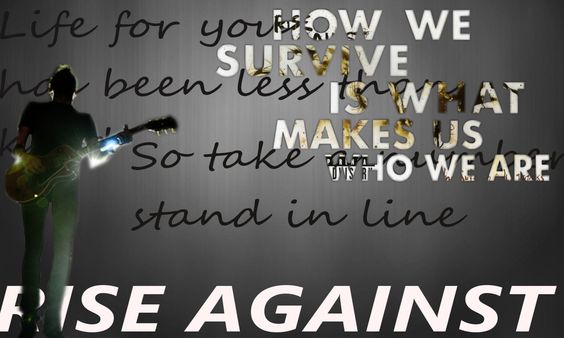
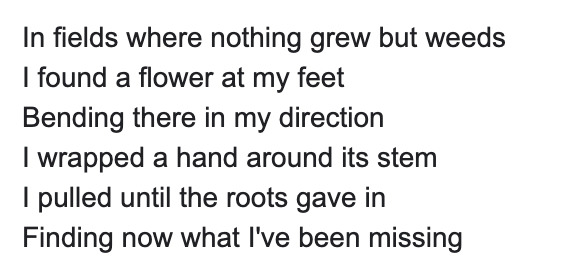
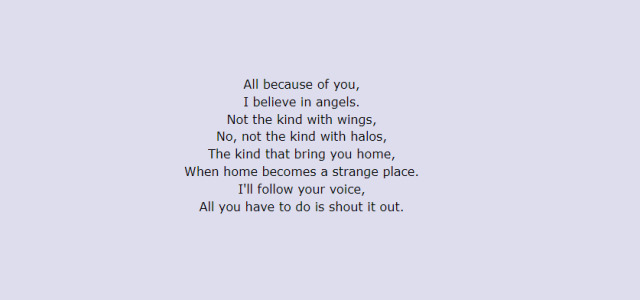
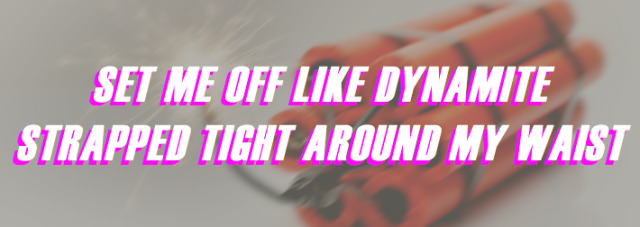
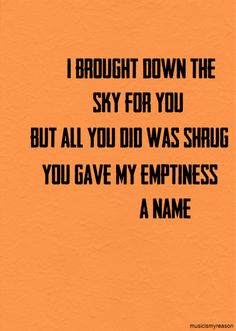



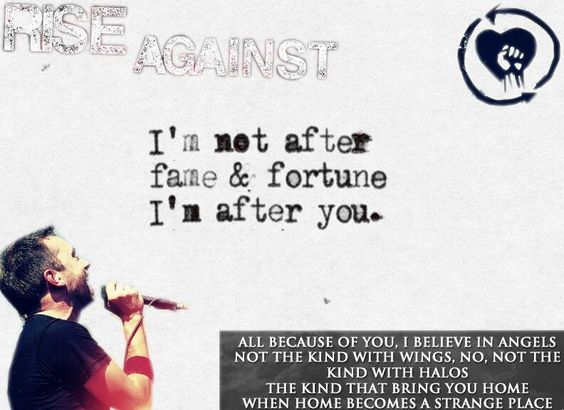


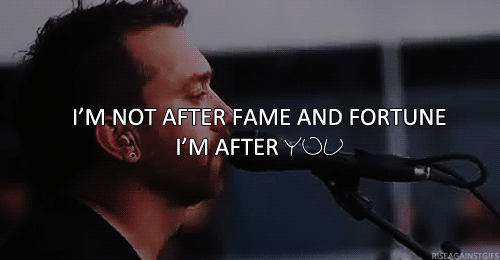
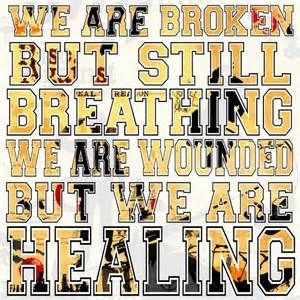
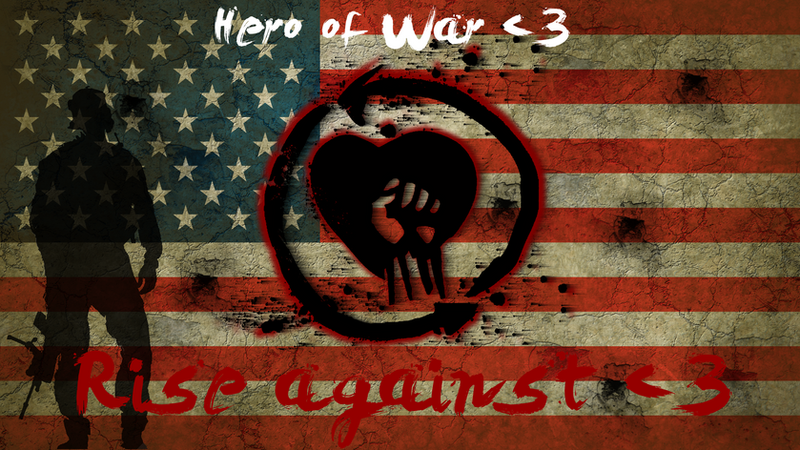

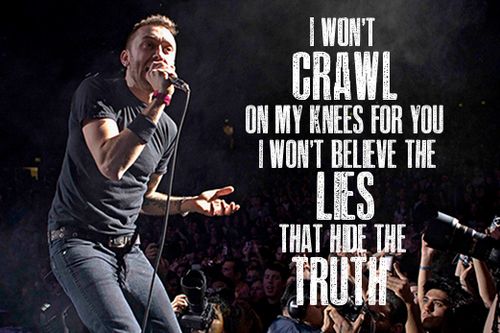
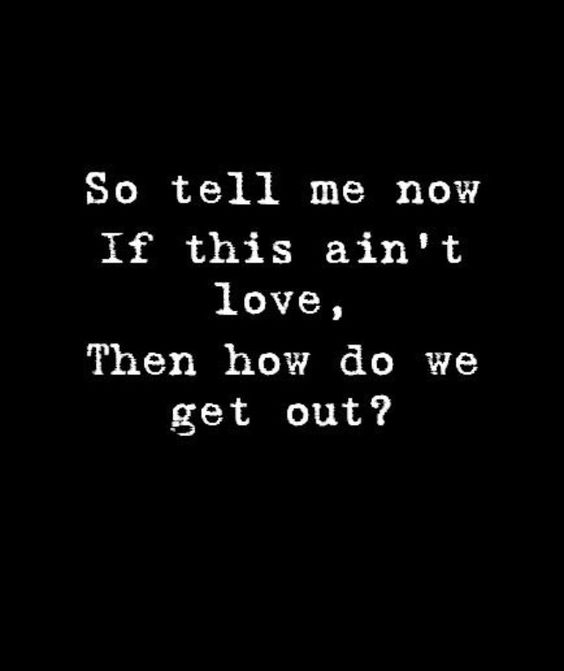
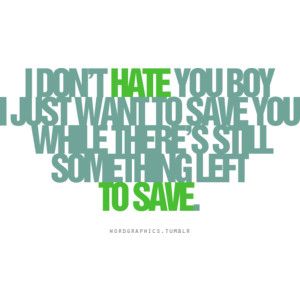
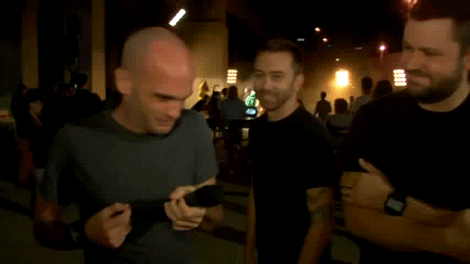
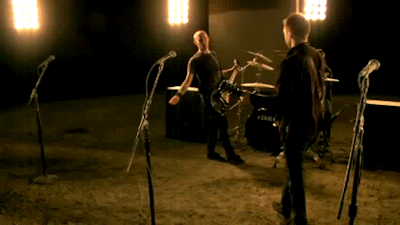
.jpg)

